For the people who don’t know, the carnivore diet is a diet consisting of simply meat & related products. Acc. to this diet, plants are ‘toxic;, and fruits, veggies, grains, or plants of any of kind, are simply a NO. Some people have a small amount of dairy foods and eggs; some don’t. Usually, alcohol and coffee are also prohibited, as they’re plant based.
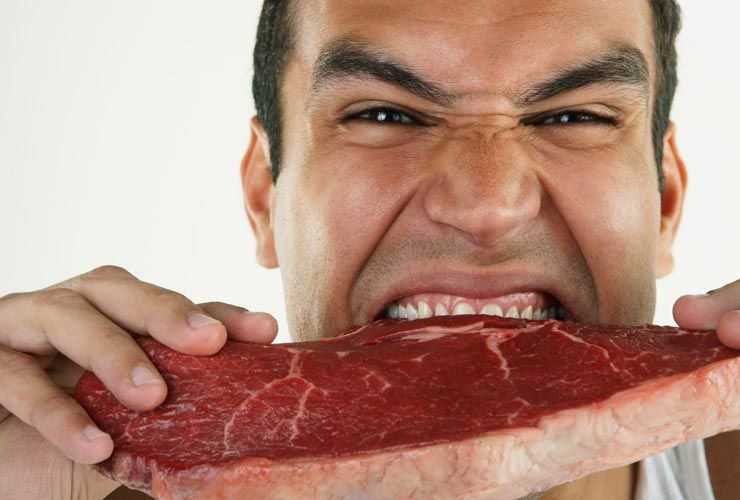
The Carnivore Diet we know today was popularized by Shawn Baker, M.D., who authored a book titled The Carnivore Diet in 2018 after finding that a meat-based diet benefited his health. He is just like a handful of people, who are associated with different kind of fad diets like gluten free or raw food diets, and claim to have miraculous benefits from them.
A carnivore diet can comprise:
- Meat: Steak, pork, ground beef, bison, lamb, and venison
- Organ meats: Liver, heart, and kidneys
- Poultry: Chicken, duck, and turkey
- Seafood: Salmon, sardines, clams, mussels, and shrimp
- Full-fat dairy: Full-fat yogurt, cheese, and butter
- Eggs: Whole eggs and egg yolk
- Bone marrow, bone broth etc.
Foods to avoid are:
- Fruits & Berries
- Vegetables: all veggies
- Grains and grain-based products: Bread, quinoa, rice, pasta, and noodles
- Nuts and seeds: Almonds, cashews, peanut butter, pumpkin seeds
- Beans: Black beans, chickpeas, kidney beans, and lentils
- Snack foods and sweets: Cookies, chips, ice cream, cakes, and candy
- Sugary beverages: Juice, soda, sweetened coffee drinks, and energy drinks
Before we move forward, we need to understand that somehow people tend to get attracted to extreme diet patterns. It makes them feel superior, irrespective whether they are benefitting from it, or even if they are feeling miserable following it. Keto diet, veganism, raw diets, extreme fasting, carnivore diet etc. are examples of extreme diets.
(The difference between a carnivore and a keto diet is the carbohydrate allowance. The carnivore diet is zero carbs, whereas the ketogenic diet is primarily a low-carbohydrate diet that causes your body to enter the metabolic state of ketosis.)
Once such diets are introduced in the market, there are groups which are formed, promoting the health benefits, they have had by following these diets.
And most people, who embark on the path of such diets, often start boasting of miraculous benefits from them. They credit their diet of curing all diseases and chronic problems, they were suffering from.
And in few cases, they are even correct. But most often, the reason behind the their health benefits, has less to do the diet, and more to do with the simple process of elimination of certain foods which were causing the problem, and addition of certain others, which their body needed nutritionally.
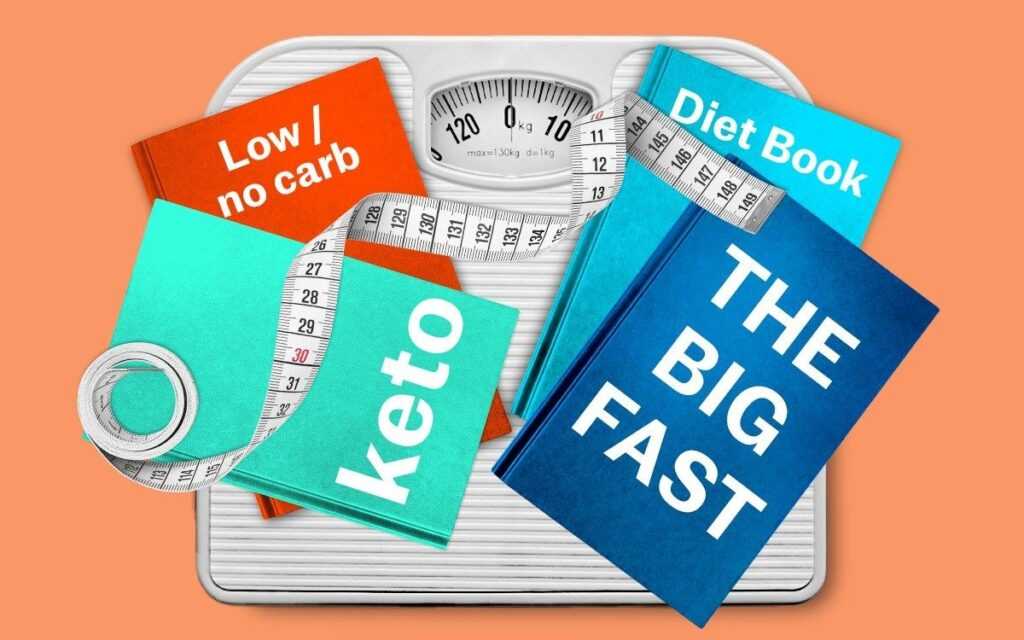
Whenever, we go on any weight loss diet, which is quite distinct from our traditional and cultural diets, and is a bit extreme in nature, we unknowingly, do these 2 things:
- Any diet you go through is a low calorie diet. And at the end of the day, what you tend to do, is simply reduce the number of calories you consume in a day.
- You will eliminate all kinds of junk food & sugary beverages, whichever diet you follow.
Apart from these, each diet has its own characteristics and nutritional requirements. For e.g. when it comes to the carnivore diet, there are many short-term perceived benefits, and beliefs associated with it:
- A carnivore diet, mainly consists of red meat. Any female deficient in iron, will ultimately get decent amount of iron from the large amount of red meat she consumes during a carnivore diet, which will restore her energy levels, and improve cognitive performance.
- Similarly, people who were deficient in protein, will have a sudden influx of large amount of protein from the meat.
- Also, people who have reported reduction in food allergies, is simply because of elimination of that component of food, which caused them the very issue. Some plant chemicals may produce adverse effects through other mechanisms, such as lecithin in beans, cyanogenic glycosides in certain seeds, and glycoalkaloids in potatoes. And elimination is the best step forward, when it comes to allergies.
- There is no doubt that a low carb diet will help you with type 2 diabetes reversal, but there is absolutely no study which emphasizes some special benefit of completely eliminating carbs, and all forms of fruits and vegetables, from your diet.
- Supporters of the carnivore diet commonly make the argument that subsisting entirely or nearly entirely on animal-sourced foods is close to the natural human diet, aligned with what was eaten in early human history. However, biological anthropologists would point out that the anatomy of our brains, teeth and intestines show that we evolved as highly resourceful and flexible omnivores who can adapt to many varied environments to meet our nutritional needs from both animals and plants.
You would often hear the proponents of the carnivore diet, that this was the diet our ancestors ate. However, archaeological research has shown a different story. In recent years, archaeologists have found evidence that hunter-gatherers ate plants, including high-carbohydrate plants such as starch-rich tubers (potatoes, yams, etc.) and grains.
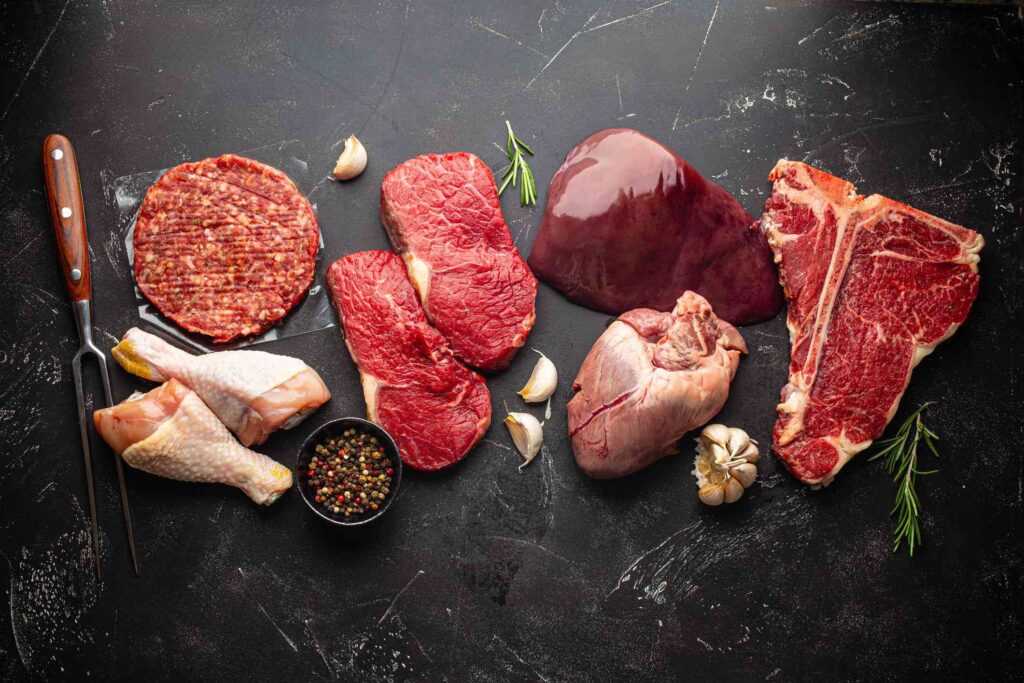
There is also evidence of plant foods in an Australian cave dated around 60,000 years ago, and cooked plant carbohydrates in Africa from at least 170,000 years ago.
Researchers further stated that, many people today have relatively recent genetic adaptions that allow us to consume foods that would have been less well tolerated by our predecessors. There are also differences in the modern human gut microbiome that may allow us to digest some foods more easily.
- Then there are other proclaimed benefits like reduced mental fog, because of carnivore diet. But there is no evidence that having more meat and no plants, is going to boost your mental clarity.
- Also, there are few of the self-proclaimed miraculous benefits, which you will hear with every fad diet, like it has cured arthritis, heart diseases and cancers also.
Now, let’s understand the real problems with the Carnivore diet:
- The biggest drawback of the Carnivore diet, and most other extreme diets, is Nutrition. When you eliminate all plants, veggies and grains, you are bound to be deficient in plethora of micronutrients. You will also be devoid of the extremely beneficial phytonutrients, or plant compounds, found in fruits & veggies.
Although essential nutrients can presumably be derived in sufficient amounts from animal foods, they are present in less commonly consumed parts of the animal, such as fat and organ meats (vitamins A and D), or bone (calcium), or may be reduced during food preparation (vitamin C).
Meat is an excellent source of high-quality protein, iron, zinc, selenium, vitamin D, and vitamins B6 and B12 – the latter can only be obtained from animal-source foods. Fish contributes high-quality protein, omega-3 fatty acids, vitamin D, selenium and iodine. Dairy foods are also rich in high-quality protein, as well as calcium, iodine and B vitamins.
A survey of 2029 people following the Carnivore diet, from 9-20 months, found that, 65-90% people following this diet, never consumed, legumes, grains, honey, vegetables, fruits, or even a multivitamin supplement etc.
The requirement of nutrition varies due to many factors, like age, physical activity, medication use, environmental factors, personal health etc. and that’s why following a diet, where most micronutrients are virtually eliminated from the diet, can spell disaster for certain individuals, in the long run.
On the other hand, proponents of carnivore diet, target fruits, vegetables and grains to contain anti-nutrients like lectins, phytates, tannins, saponins etc. which decrease the absorption of various micronutrients. These statements can only be given by a person who has studied nutrition through social media.
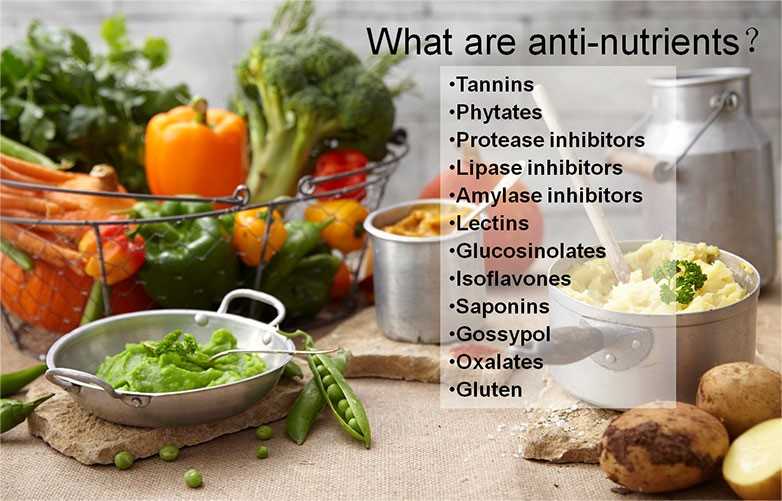
Most of these anti-nutrients are destroyed, when you soak, and cook the foods. For e.g. a better way of soaking has been found which helps reduce the anti-nutrients to a greater extent, i.e. by adding baking-soda to the soaking water. A study, found that, soaking legume seeds, including soybeans, in water with 0.5% baking-soda, resulted in the reduction of anti-nutrients like tannins (-68%), trypsin inhibitor (-30%), and phytates (-21%), while also increased the digestibility of soy protein.
An even more powerful way to further reduce the anti-nutrients would be to boil the soybeans after soaking them overnight. This has shown to reduce almost all of the tannins and over 80% of the trypsin inhibitors. Industrially the same process of followed, and after this process, soy is used to make soy flour and soy protein concentrates.
Also, there are people who go a step further & try to consume raw meat, when on the carnivore diet, so that they can absorb all the micronutrients in meat, which gets destroyed during cooking. But all this while, they forget a very simple fact, that raw meat and dairy are highly susceptible to bacterial contamination, which can cause very serious health conditions, including death. That’s why cooking meat, and pasteurizing milk before consumption, has been recommended by all medical & nutrition bodies of the world.
2. The second, and related problem with the Carnivore diet, is the absolute lack of fiber in the diet, which can lead to multiple digestive issues, like constipation. This is one problem which is probably the biggest one, when it comes to dependence on diets like Keto or carnivore. Most people following such diets, are generally taking additional fiber supplements to combat the gut issues.
Dietary fibre promotes the growth of healthy gut bacteria, which nourishes the intestinal wall and protect against inflammation, thus improving gut health. By contrast, low-fibre diets have been associated with unhealthy gut flora that degrade the mucus lining the intestinal walls.
In fact, a high protein (low fibre diet), leads to incomplete protein digestion, which increases the growth of certain bacteria in the colon that create toxic by-products (so-called “putrefactive metabolites”). This is even more likely in people with intestinal diseases, including Inflammatory Bowel Disease.
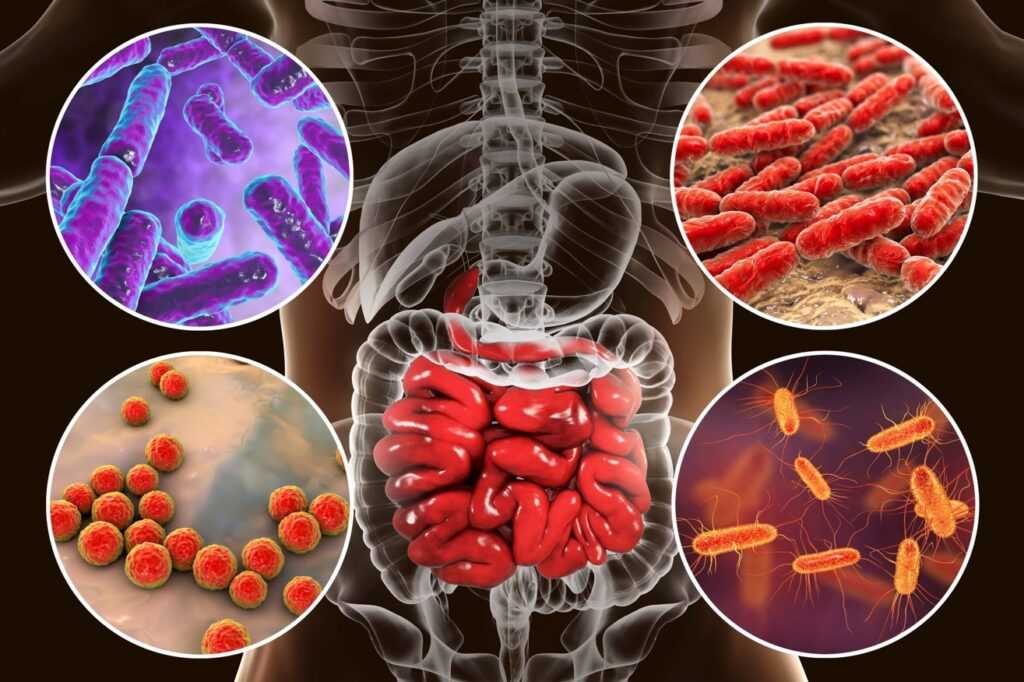
There is strong global consensus that increased dietary fibre consumption is associated with lower risks of cardiovascular disease, type 2 diabetes and colorectal cancer, whereas high red and processed meat consumption increases risk.
3. The third reason is environment. Meat production is one of the most important ways in which humanity affects the environment: We cut down forests to create pasture as well as arable land to meet the demand for animal feed. Livestock production is a major source of greenhouse gases (GHGs) and other pollutants, in some areas makes major demands on scarce water resources, and can exacerbate soil erosion.
This fact is concerning because red meat production, especially beef meat, produces more CO2 emissions than white meat. Despite beef only providing about 1% of global calories (and an additional 5% from dairy), cows require 21% of global arable land for feed production and animal pasture.
Studies have shown, lower GHG emissions when a vegetarian diet is followed. For example, a study compared the GHG emissions in different diet styles, concluding that a high-meat diet emitted 7.19 carbon dioxide equivalents per day (kgCO2e/day), while vegetarian diet emitted 3.81 kgCO2e/day. It means almost a half of reduction in GHG emissions. The decrease is even greater when following a vegan diet: 2.89 kgCO2e/day.
In turn, a study investigated the environmental costs of producing 1 kg of protein from different plant- and meat-based products. The results showed that production of 1 kg of protein from beef needed 18 times more land, 10 times more water, 9 times more fuel, 12 times more fertilizer, and 10 times more pesticides than the same amount of proteins obtained from kidney beans. Moreover, production of proteins from chicken or eggs also generates less waste than proteins from beef.
4. The fourth major issue is ethics. That’s probably a reason, most people can’t even think of going non-vegetarian, forget about Keto or Carnivore. Our culture and religion, has a major impact on the way we eat. And when it comes to the Hindu culture, non-vegetarian foods, are generally not acceptable, at least not to the extent wherein one consumes nothing but meat.
5. And the fifth reason is Sustainability. The biggest drawbacks of any fad diet is sustainability. A diet is for life. You can make changes in the diet you have been consuming since childhood, to make it more nutritious, but you can’t simply follow an alien diet. And even if you do, which many try, you would end up giving up. That’s why a diet is supposed to be based on your culture, taste buds, tradition, allergies & sensitivities, and nutritional profile.
CONCLUSION
Acc. to a 2021 study, consumption of variety of food groups from both plant and animal food sources has been linked to favourable health outcomes in epidemiologic studies and clinical trials and is expected to satisfy the recommended DRIs of macronutrients (i.e., protein, carbohydrates, and fats), micronutrients (i.e., vitamins and minerals), and food components (e.g., dietary fibre).
Also, the problem is not red meat or slightly larger consumption of meat, but solely basing your diet on meat and more meat, that too virtually eliminating all forms of fruits, veggies & grains.
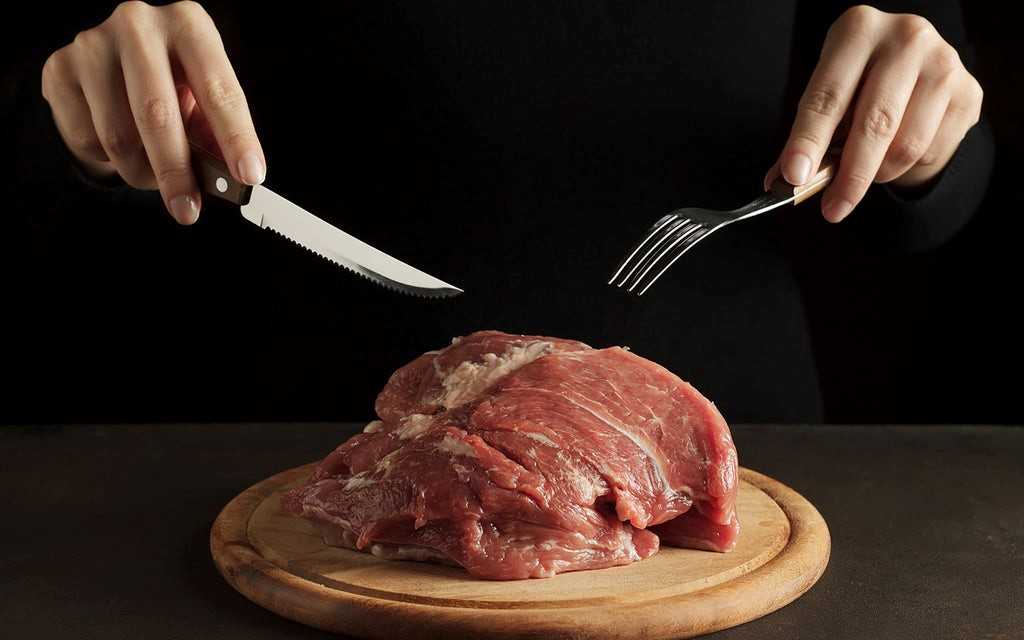
This becomes even more worrisome, if you belong to a culture where traditional diets are extremely healthy, and nutritious; instead of balancing the diets nutritionally, and relishing the variety of taste it offers, you shift on to a completely alien, and mostly self-made diet pattern, because of misleading social media influence.
For e.g. diets like Keto or Carnivore diets, have their origin in the Arctic & Nomadic societies, wherein the people have limited access to plants, veggies and grains, and have to solely depend on meat and sea foods for their survival. And despite of such diets, this population has been associated with good health and longevity.
As the study, suggested that, long-term consumption of a strictly animal-based diet would be associated with significant nutritional deficiencies and confer negative health effects compared with a plant-based diet, including poor gut and gut-microbiota health, an adverse cardiovascular disease risk pattern, and other chronic health complications.



